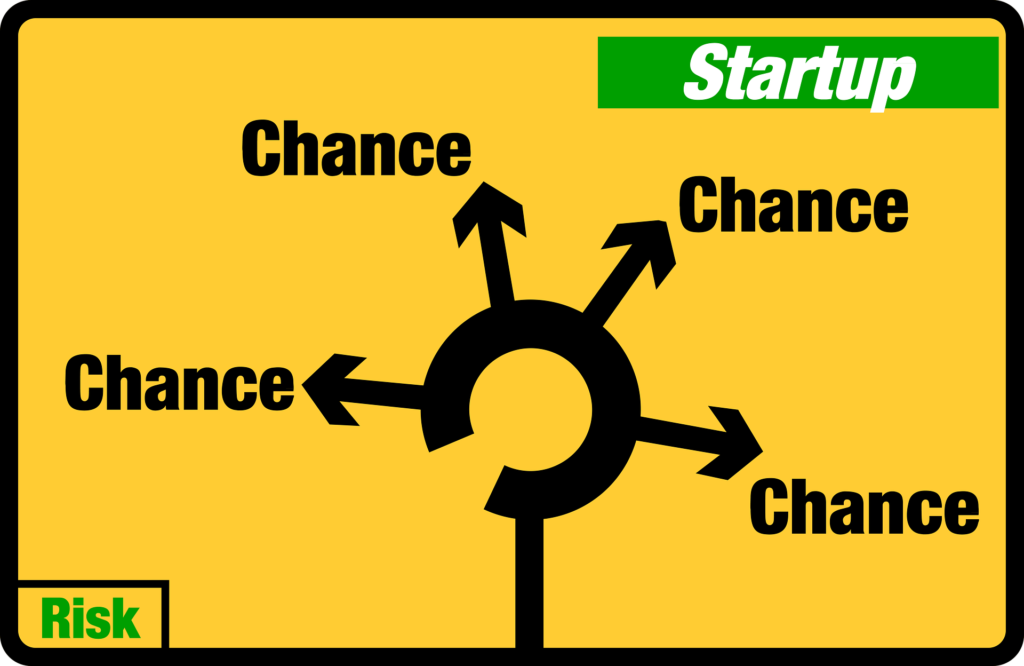What are the riskiest investments? As an investor, it pays to be able to differentiate between risky and high-risk investments. Successfully investors must accept a level of investment risk, but always balance this with the potential rewards on offer.
Below, we list the investments that are (in our opinion) the riskiest investments available to retail investors. It’s up to you whether you risk your money on such gambles, which tend to provide a high likelihood of loss, with a small chance of a big pay-off. In a sense, you could think of them as the lotteries of the investment world. Just as you wouldn’t use your grocery budget to buy lottery tickets, these high-risk investments shouldn’t be the core holdings of any portfolio designed for stable returns. Instead, they should be only made with money you can afford to lose.
#1 Equity crowdfunding
Equity crowdfunding is where small or medium-sized businesses issue equity to a wide group of public investors via a private fundraising platform. This allows private firms to tap into the capital of their fans, customers or interested parties, while increasing engagement in their brand and products.
Equity crowdfunding platforms such as Funderbeam usually have between 50 – 100 open investment opportunities at any one time. A typical funding round is open to the public for between 1 – 8 weeks, meaning you may have to check back regularly for new investment opportunities.

Investing in small, private companies carries a high degree of risk because not only do a high proportion of small firms ultimately fail, but private equity is difficult to sell. Unlike with publicly traded shares, you cannot simply pick a good stockbroker and trade your shares on the open market. Some platforms offer limited secondary markets for users to trade shares with other users, but there are no ‘market makers’ on these platforms to step in and provide a minimum level of liquidity during periods of low confidence in a firm. This can mean that when the shares of a private company drop in desirability, they may be impossible to sell for any meaningful price.
The most traditional exit opportunity for crowdfunding investors is to receive cash for their shares if the company eventually lists on the stock market, or if the company is wholly acquired by a larger entity. For example, a small boutique software firm could be acquired by a tech giant such as Google or Amazon.
Such examples are very infrequent, but are very lucrative events that could provide early investors with over 100x returns. Equity crowdfunding is thus seen as one of the riskiest investment arenas with an ‘all-or-nothing’ profile of returns.
#2 Cryptocurrency
Investing in cryptocurrency is labelled as very high risk by UK authorities like the Financial Conduct Authority.
Not only does the total market cap of all cryptocurrencies fluctuate more aggressively than the stock market, but the number of investment scams operating within the cryptosphere is mind-boggling.
At the time of writing, the price of the most mainstream crypto token Bitcoin is worth just 29% of its all-time-high price reached in November 2021. And to repeat ourselves – Bitcoin is one of the relatively stable cryptocurrencies due to its sheer size.

Cryptocurrency valuations are notoriously subjective because unlike equities or bonds, cryptocurrencies don’t provide a fixed (or even variable) income in the form of hard currency. Investors can forecast a series of dividends or bond coupon payments and easily place a current value on what they would be prepared to pay to own that stream of income.
Cryptocurrencies may offer different intrinsic benefits (like memberships or digital assets) but even these benefits are difficult to value, particularly because there are highly prominent examples of promised features by crypto developers being rescinded, leaving investors with little legal recourse to enforce them to deliver on their promise, because buying a token is not the same as entering into a contract with the developer.
Legal quagmires, cowboys around every corner and the bankruptcy of many well-known centralised exchanges all make investing in cryptocurrency one of the riskiest things you can do with your money.
#3 Trading CFDs
Contract for Difference (CFD) brokers offer their clients access to financial instruments that provide gains and losses based on whether the price of an underlying asset moves in favour of the client’s bet. Learn more in our introduction to CFDs article.
Even the best CFD brokers in the UK disclose that over 50% of their clients lose money when trading CFDs. This gives an indication of the level of risk posed by trading with leverage.
These disclosures often draw comparisons with gambling or gaming companies who could probably quote the same. An argument goes that you might as well sign-up to a gambling platform for 30 free spins instead, as at least the game you play will be exciting, and have a definitive end, compared to watching the financial markets.
#4 Frontier markets
If you are beginning to feel that investing in emerging markets as quite a mainstream play these days, you could look at the bracket of economies that aren’t considered developed enough to be classified as an emerging markets. Welcome to the frontier markets.
By way of introduction, frontier markets are accessible but don’t meet the ‘investment grade’ status that would allow blue chip investment funds or pension funds to invest in them. Risks could include political and climate risks that aren’t usually present in developed economies.
In our guide to frontier markets, we provide a comprehensive list of economies that carry the ‘frontier’ label and are included in various indices dedicated to the subject.
Frontier markets could be home to the world’s riskiest listed equity markets. Their economies are developed enough to feature stock exchanges, and provide limited investment routes to international investors, but it is possible that their economy is close to being in a state of peril or their regimes may have a history of appropriating private assets. Such risks are usually enough to cause investors to blacklist opportunities there, but in the name of seeking out the highest risk, frontier markets could be worth a punt.
We hope you have enjoyed this ranking of the riskiest investments. Do you agree or disagree with the riskiest investments we have chosen? Share your opinion by leaving a comment below.